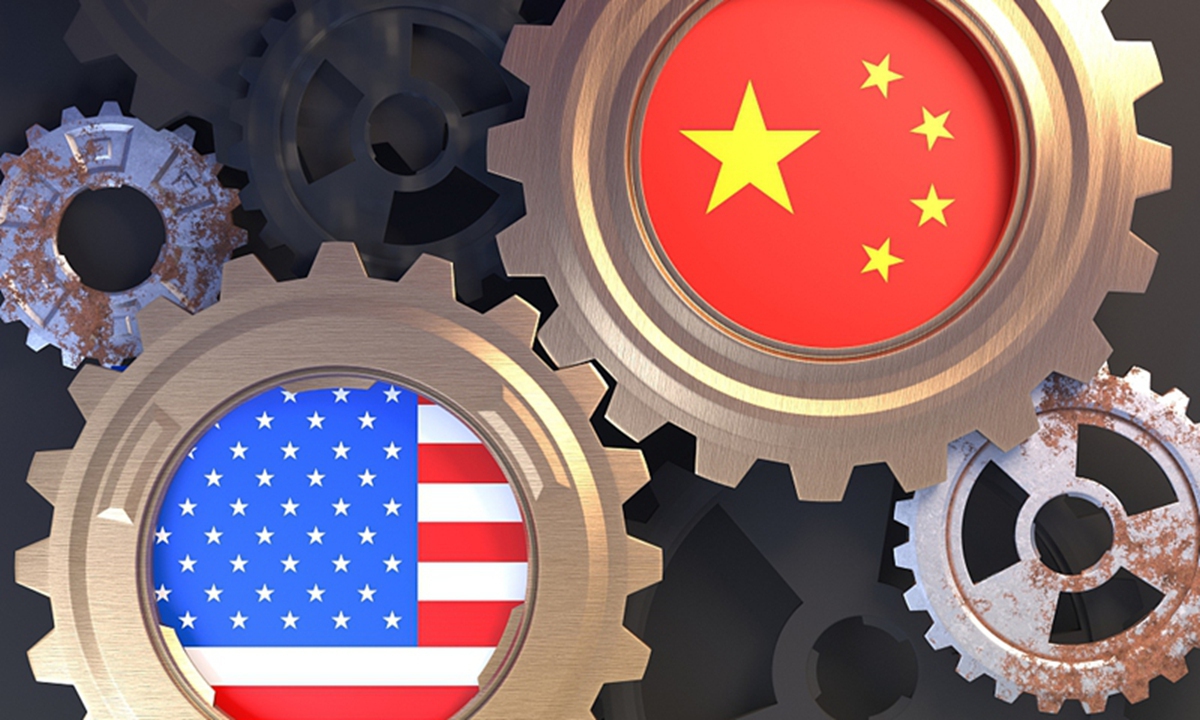Chinese market attractive to US firms; majority have no plans to relocate operations: AmCham survey

China US
Many US companies still find the Chinese market an attractive investment destination, with a large majority of them saying they have no plans to relocate operations elsewhere, though increasing rivalry between the world's two largest economies casts shadows over bilateral ties, a survey by the American Chamber of Commerce in China (AmCham China) revealed Wednesday.
The importance of China's market remains clear, with the wealth of opportunities presented by China's 1.4 billion consumers continuing to attract member companies, the Chamber said.
About 74 percent of the firms surveyed said that they are not considering relocating manufacturing or sourcing outside of China, said the survey, titled AmCham China's 2023 China Business Climate Survey Report.
Michael Hart, AmCham China president, also highlighted China's importance for foreign investment in a later Q&A session, noting that "even if people are investing in other locations with supply chains, it's still a 'China plus one' situation, which still involves China, and that's really important."
Hart pointed out a few areas where there are policy incentives that help foreign firms, for example, the Guangdong-Hong Kong-Macao Greater Bay Area. "They come up with incentive policies that make China as an attractive place to invest."
"With the borders now re-opened for business, our member companies look forward to deeper in-person communication across the board," said Colm Rafferty, chairman of AmCham China.
"We are starting to hear, I would say probably half a dozen US companies have said their CEOs are going to visit this spring. We are talking to a number of them about helping to brief their CEOs. When they come in, they're going to visit their employees, their facilities and their customers, and they also want to talk to us about the overall sentiment," Hart told the Global Times Wednesday.
Nevertheless, coming against the backdrop that some US lawmakers are intensifying efforts to decouple the US from China, respondents of the survey said that rising US-China tensions remain the top business challenge, cited by 66 percent of participants.
In a fresh move to prevent further US investment in China's high-tech sector, a new US Commerce Department rule demanded that US chipmakers must agree not to expand capacity in China for a decade if they are to receive any money from a $39 billion US federal fund designed to rebuild US semiconductor industry.
"Members' number one hope is that the US government will refrain from engaging in aggressive rhetoric and tit-for-tat actions. Additionally, this year nearly one-third of members are hoping that the US will take the lead in regularizing government-to-government communications," said the survey.
The survey, which was conducted between mid-October and mid-November last year before China optimized its COVID management, showed US companies in China reported a slightly more pessimistic financial outlook compared with years ago.
As early signs have indicated a stronger-than-expected recovery of the Chinese economy, domestic and foreign companies have a better outlook for business in China this year.
Global investors are bullish, and they have been pouring into China. In January, China's actual use of foreign direct investment rose 10 percent year-on-year to $19.02 billion, with the high-tech manufacturing sector continuing to be highly attractive.
Mao Ning, Chinese Foreign Ministry spokesperson, told a regular press conference on Wednesday that the facts have proved that China is a hot spot for investment by foreign-funded enterprises.
On the one hand, foreign firms benefit from China's large market and complete production and supply chain networks. On the other hand, they also see benefits from China's unswerving promotion of high-level opening-up.
"No matter how the international situation changes, China's determination to expand high-level opening-up and share development opportunities with the world will not change. We welcome companies from all over the world, including American companies, to enter the Chinese market, share development dividends and jointly promote world economic growth," the official said.


